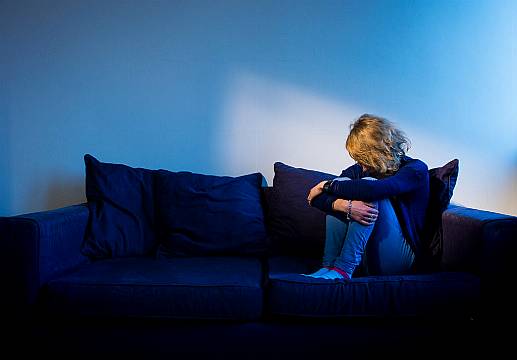People are increasingly pessimistic that their lives will return to a form of pre-pandemic normality, a Central Statistics Office study has shown.
In November 2020, almost two-fifths of people (39.2 per cent) surveyed thought their lives would return to something more familiar within a year’s time.
But when the same question was asked of people in February this year, only 23.6 per cent of respondents thought this would happen by November 2021.
Gerard Reilly, CSO Senior Statistician in the Income, Consumption and Wealth area, speaking about today's Social Impact of COVID-19 Survey February 2021: Well-being publication.
The link to the publication: https://t.co/4DI8ZnnQIN pic.twitter.com/jX81dpXPac— Central Statistics Office Ireland (@CSOIreland) February 25, 2021
Advertisement
And six in ten people (61.4 per cent) believe that even when the current level five pandemic restrictions are eased, similar restrictions will be imposed before the end of the year.
The number of those who believe the Government’s response to the pandemic is insufficient is also on the rise.
In November 2020, 10.2 per cent believed the response was not sufficient, but by February of this year that figure had grown to 26.4 per cent.
And as pandemic pessimism increases, life satisfaction declines.
Almost six in ten (57.1 per cent) respondents to the February 2021 survey reported that their mental health and wellbeing had been negatively affected by the pandemic.
More than four in ten people surveyed (41.7 per cent) rated their overall life satisfaction as “Low”.
Senior statistician Gerry Reilly said: “This is the highest rating for Low overall life satisfaction captured in CSO surveys to date.
“In 2013 when many households were suffering the effects of the 2007 financial crisis, this rate was 15.3% and it dropped to 8.7% in 2018 when the economy was growing strongly.
“In April 2020, during the first Covid-19 wave, three in ten (29.6%) respondents rated their overall life satisfaction as Low.
“The rate increased to 35.6% in November 2020, during the second Covid-19 wave.”
Younger people are struggling more with the effects of the pandemic with more than a fifth (20.5 per cent) of 18 to 34-year-olds reporting feeling downhearted or depressed “all or most of the time”.
That compares to just 5.7 per cent of those aged 70 years and over.
The overall number of people who have reported feeling downhearted or depressed “all or most of the time” has increased steadily.
In April 2020, during the first wave, the figure was 5.5 per cent, in November 2020 it was 11.5 per cent, increasing to 15.1 per cent by February this year.
When the question was asked in 2018, the figure was just 2.8 per cent.
Despite this, people are continuing to abide by the restrictions, with more than three-quarters rating their compliance levels as “High”.
Mr Reilly said: “In February 2021, three in four (75.1 per cent) respondents rated their compliance with current Government advice and guidelines as High.
“This is ten percentage points higher than the rate in November 2020 when 65.2 per cent of respondents rated their compliance as High.

“Respondents reporting High compliance was lowest in June (59.9 per cent) when the country was just about to enter phase three of the road map for reopening society, and highest in April (80.6 per cent), approximately one month after initial Covid-19 restrictions were implemented.”
A small number of people (4.2 per cent) reported the pandemic had resulted in a positive impact on their mental health.
Analysis by sex showed that female respondents were more likely to report a positive effect, with 6.7 per cent reporting this, compared with 1.6 per cent of male respondents.







